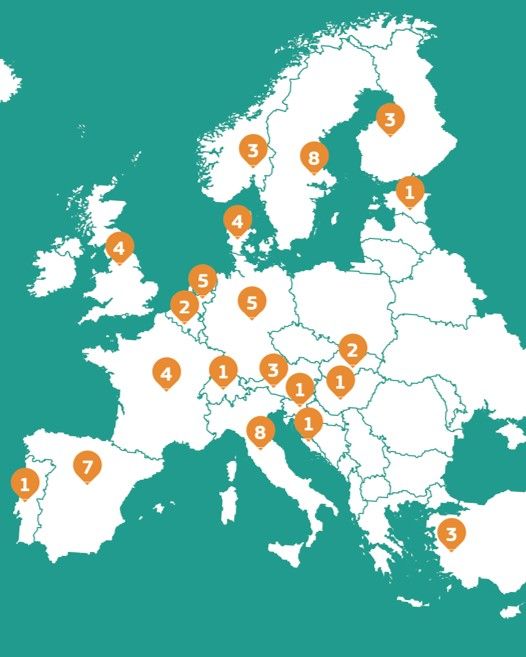Make cities smarter
Make cities smarter

The world is constantly changing, so the people and the consumption where they live. More than 50% of world’s population lives in cities and this share is 80% in the cities of many countries. This surge in cities has also affected the quality of life which needs smarter solutions. The common issues faced by the people in city are shortage of resources, space, transportation, security, infrastructure, as well as health problems. Another side effect of tackling these issues is higher spending on public projects.
According to IDB, public services can cost up to 220 billion dollars if procurement not done efficiently. In order to deal with these issues, smart cities are needed that can offer smarter solutions for the complex problems and sustainable approach. The global market for smart cities solutions is growing 17% each year, which emphasizes the seriousness around the topic
Why smart city now? The policy making need to match with the pace of changing cities and its people. This is why the concept of smart city depends on the people. It may include intelligent mobility, smart health centers, connected building, and public systems. It is not about installing sensors rather using analytics to deliver better quality of life based on the data Before even heading to smart city, one must answer following questions:
- Is my city livable, healthy, safe and sustainable?
- What the primary needs of the habitants?
- How can we anticipate the issues which occur in the neighborhoods?
- How quickly can we solve the common problems?
- Is my city competitive enough for business investments?
- Last but not the least, what lacks in the city?
Smart City initiatives in Europe

- Europe aims to have 300 smart cities by end of 2019
- About 78 cities in Europe have already undertaken smart city development with the help of Smart Cities and Communities European Innovation Partnership
- 12 ‘Lighthouse’ or leader cities have been funded €270 million since 2014 to migrate to smart cities
- The Belgian bank Belfius in partnership with the European Investment Bank (EIB) has provided €660 million to smart city projects in their region
- Spain, Italy, and UK have the highest number of Smart Cities in the EU
- 240 cities in the EU have two or more Smart City initiatives already in place
Sharing Cities - The Lisbon city has drafted an urban development strategy for the coming decades and has committed to invest €307 million in related projects to make itself ‘smart’. The focus areas are energy efficiency in buildings, e-mobility, smart living. Reduce energy consumption - In Amsterdam, by taking measure of energy efficient lighting Utrechtsestraat, also called “Climate Street”, reduced its energy use by 10%. These kind of projects were later rolled out across the city Crime Alerts - Moscow city installed CCTV cameras as a part of smart city project and they were able to solve more than 3500 crimes in 2018, which was 16% better compared to the previous year Urban Planning - In Copenhagen, with the help of urban planning, the city plan to become carbon neutral. The estimated socio-economic gain from heating and electricity would be around 1 billion DKK yearly
Where Smart City helps

How can we do it?
Each city has unused data that can be accessed through connecting public systems & municipality small-scale computer networks Innovative technologies allows us to access this data through secure data pipelines The initial step is to access this big data using location intelligence and data science tools that analyze city data With the data, we can build scenarios and compare the results to step forward with smart solutions It is also essential to communicate the results to the public and government in real time so that actions are faster than ever Involve government to implement the project in phases that justifies a ROI and brings in new investments.
Sources:

